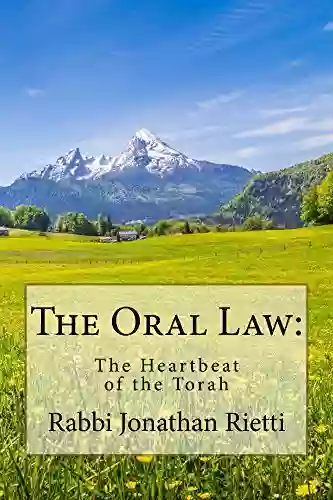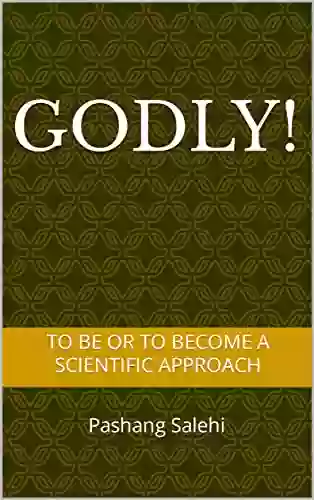Do you want to contribute by writing guest posts on this blog?
Please contact us and send us a resume of previous articles that you have written.
The Oral Law: The Heartbeat of the Torah

The Torah, the sacred text of Judaism, is comprised of the Written Law (Torah Shebichtav) and the Oral Law (Torah Shebeal Peh). While the Written Law consists of the Five Books of Moses, commonly known as the Pentateuch, the Oral Law encompasses the vast body of teachings, interpretations, and explanations passed down from generation to generation through an oral tradition. In this article, we will explore the significance of the Oral Law, its preservation, and its continued relevance within the Jewish faith.
The Role of the Oral Law
The Oral Law serves as an interpretive guide to understanding and applying the commandments outlined in the Written Law. It provides additional details, clarifications, and traditions that were not explicitly mentioned in the written text. For instance, the Torah commands Jews to "remember the Sabbath day and keep it holy" (Exodus 20:8). The Oral Law expands on this commandment by specifying the specific actions and restrictions that are required to observe the Sabbath.
Additionally, the Oral Law provides a framework for resolving conflicts, addressing new situations, and applying the principles of the Written Law to changing circumstances. As society evolves, the Oral Law allows Jewish scholars and leaders to adapt the timeless principles of the Torah to contemporary realities and challenges.
5 out of 5
| Language | : | English |
| File size | : | 1376 KB |
| Text-to-Speech | : | Enabled |
| Screen Reader | : | Supported |
| Enhanced typesetting | : | Enabled |
| Word Wise | : | Enabled |
| Print length | : | 51 pages |
| Lending | : | Enabled |
The Oral Tradition
The transmission of the Oral Law is a meticulous process that demands precision and fidelity to ensure its accuracy across generations. From the time of Moses, this oral tradition was carefully transmitted from teacher to student, ensuring the preservation of the vast knowledge encapsulated within the Oral Law.
Throughout history, Jewish sages and scholars dedicated their lives to memorizing and teaching the intricate details of the Oral Law. They committed themselves to a lifelong process of studying, analyzing, and transmitting this priceless treasure of wisdom and understanding. The act of passing down this knowledge from one generation to the next created an unbroken chain of Jewish tradition spanning thousands of years.
Such a system required impeccable memory, as every word, syllable, and inflection had to be remembered accurately. To aid in this process, mnemonic devices, repetitive recitation, and specific techniques were developed to enhance the retention of the information. This oral transmission continued until the Oral Law was finally codified in written form in the Mishnah and later expanded upon in the Talmud.
Preserving the Oral Law
Throughout Jewish history, various external factors posed significant challenges to the preservation of the Oral Law. Exile, persecution, and cultural assimilation threatened to sever the continuity and accessibility of this crucial body of knowledge. To counter these threats, Jewish communities established centers of learning and study, such as yeshivas, where scholars dedicated themselves to the study and transmission of the Oral Law.
The diligent efforts of these scholars ensured that the Oral Law survived countless trials and tribulations. Their unwavering commitment to preserving the Oral Law solidified its position as the heartbeat of Jewish life and practice. This unifying force allowed Jewish communities to remain connected to their heritage, despite geographical distances and external pressures.
The Relevance of the Oral Law Today
Although the codification of the Oral Law in the Mishnah and Talmud marked a significant milestone, the study and interpretation of the Oral Law continue to thrive in contemporary Jewish life. Today, Jewish scholars, known as rabbis, explore and apply the principles of the Oral Law to guide the Jewish community in matters of religious observance, ethics, and legal decision-making.
The Oral Law serves as a dynamic source of inspiration, providing contemporary Jews with guidance and wisdom in navigating the complexities of modern life. It offers a nuanced understanding of the Written Law and allows for a deeper interpretation of its principles and commandments.
Furthermore, the Oral Law fosters a sense of unity and common identity among Jews worldwide. By adhering to the same traditions, rituals, and practices rooted in the Oral Law, Jewish communities can forge a powerful connection that transcends borders and time.
The Oral Law, as the heartbeat of the Torah, plays a vital role in Jewish faith and practice. It sheds light on the nuances of the Written Law, provides interpretive guidance, and keeps the flame of Judaism burning through the generations. The preservation of the Oral Law is a testament to the resilience and devotion of Jewish scholars and communities throughout history. Today, the study and application of the Oral Law continue to enrich Jewish life, offering a comprehensive framework for religious observance, ethical conduct, and communal cohesion.
5 out of 5
| Language | : | English |
| File size | : | 1376 KB |
| Text-to-Speech | : | Enabled |
| Screen Reader | : | Supported |
| Enhanced typesetting | : | Enabled |
| Word Wise | : | Enabled |
| Print length | : | 51 pages |
| Lending | : | Enabled |
This booklet will greatly benefit anyone who wants answers to the most asked questions about the Oral Law, including:
1. The Divine origin of the Oral Torah.
2. Its transmission until it was written in the form of the Talmud.
3. How to understand opposing opinions in the Talmud.
4. Why G-d did not want the Oral Law to be written.

 Richard Simmons
Richard SimmonsThe Secrets of Chaplaincy: Unveiling the Pastoral...
Chaplaincy is a field that encompasses deep...

 Manuel Butler
Manuel ButlerAnimales Wordbooks: Libros de Palabras para los Amantes...
Si eres un amante de los animales como yo,...

 Rod Ward
Rod WardLet's Learn Russian: Unlocking the Mysteries of the...
Are you ready to embark...

 Rod Ward
Rod WardThe Incredible Adventures of Tap It Tad: Collins Big Cat...
Welcome to the enchanting world of...

 Eugene Powell
Eugene PowellSchoolla Escuela Wordbookslibros De Palabras - Unlocking...
Growing up, one of the most significant...

 José Martí
José Martí15 Exciting Fun Facts About Canada for Curious Kids
Canada, the second-largest...

 Ken Simmons
Ken SimmonsWhat Did He Say? Unraveling the Mystery Behind His Words
Have you ever found yourself struggling to...

 Carlos Fuentes
Carlos FuentesA Delicious Journey through Foodla Comida Wordbookslibros...
Welcome to the world of Foodla Comida...

 Matt Reed
Matt ReedThe Many Colors of Harpreet Singh: Embracing...
In a world that often...

 Chandler Ward
Chandler WardWelcome To Spain Welcome To The World 1259
Welcome to Spain, a country that captivates...

 Garrett Powell
Garrett PowellAmazing Recipes for Appetizers, Canapes, and Toast: The...
When it comes to entertaining guests or...

 Emilio Cox
Emilio CoxDays And Times Wordbooks: The Ultimate Guide to Mastering...
In the realm of language learning,...
Light bulbAdvertise smarter! Our strategic ad space ensures maximum exposure. Reserve your spot today!

 Brennan BlairBoy Everywhere Dassu - Discover the Extraordinary Journey of Survival and...
Brennan BlairBoy Everywhere Dassu - Discover the Extraordinary Journey of Survival and...
 Patrick RothfussUnlocking Indigenous Wisdom: The Power of Traditional Knowledge in Assessing...
Patrick RothfussUnlocking Indigenous Wisdom: The Power of Traditional Knowledge in Assessing...
 Forrest ReedDiscover the Game-Changing Insights of Limnogeomorphology in Environmental...
Forrest ReedDiscover the Game-Changing Insights of Limnogeomorphology in Environmental... Griffin MitchellFollow ·16.1k
Griffin MitchellFollow ·16.1k Avery SimmonsFollow ·10k
Avery SimmonsFollow ·10k Jett PowellFollow ·19.5k
Jett PowellFollow ·19.5k Andres CarterFollow ·6.4k
Andres CarterFollow ·6.4k Lee SimmonsFollow ·17.3k
Lee SimmonsFollow ·17.3k Salman RushdieFollow ·8.2k
Salman RushdieFollow ·8.2k Francis TurnerFollow ·17k
Francis TurnerFollow ·17k Logan CoxFollow ·16.1k
Logan CoxFollow ·16.1k















